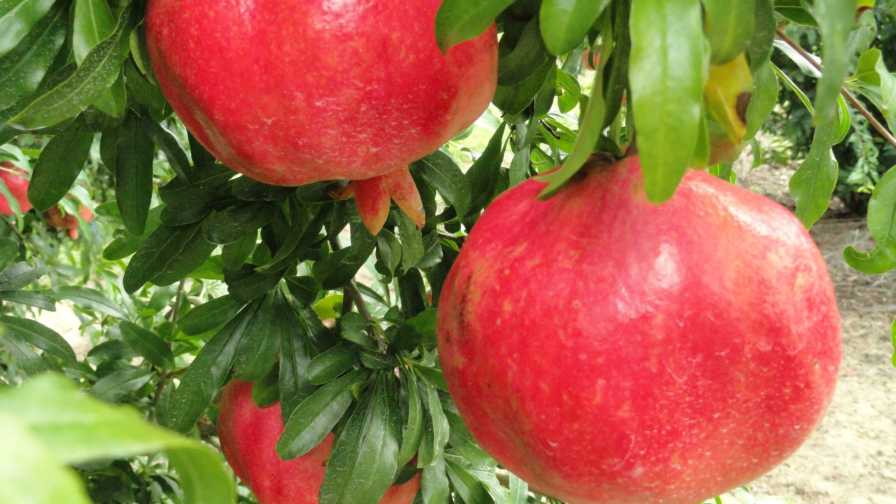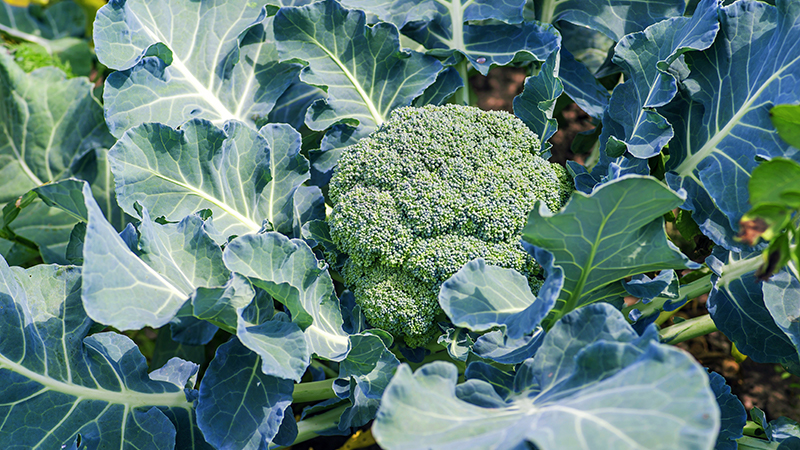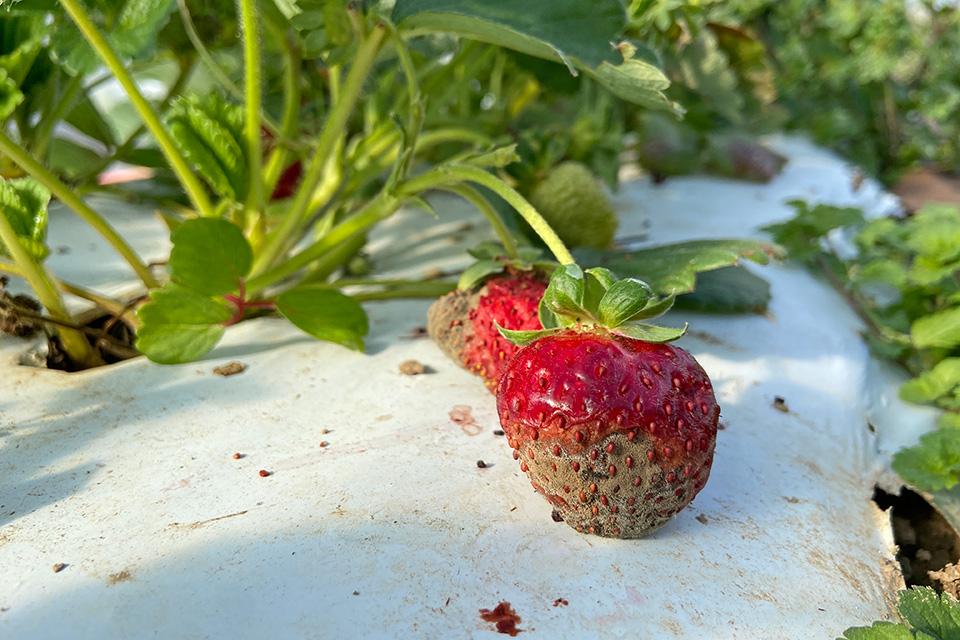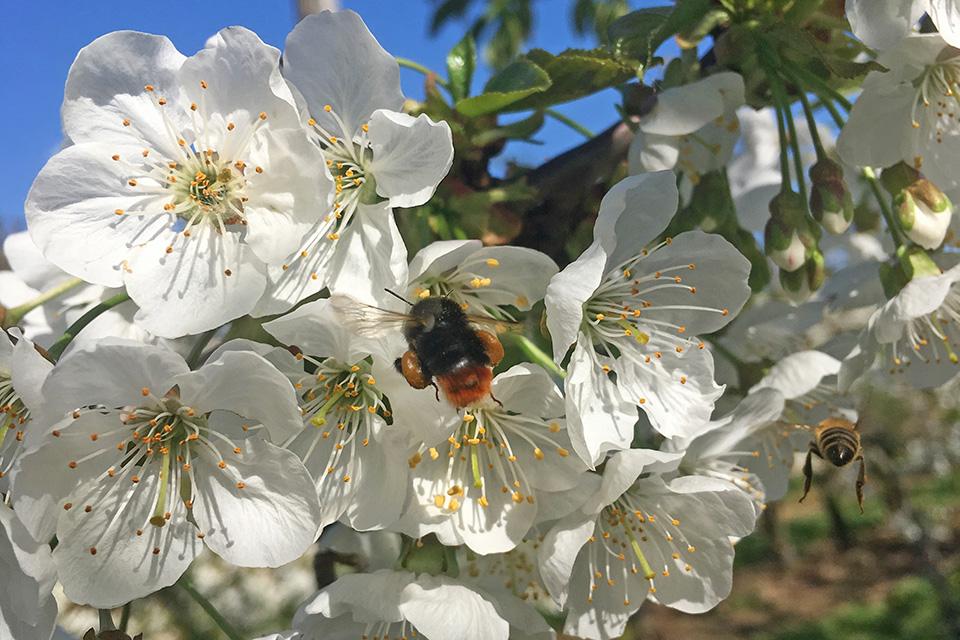Scientists Look to Build a Better Pomegranate

The pomegranate is an alternative crop choice for growers in Florida. The humid climate though makes it difficult to cultivate there. Scientists are working on that.
Photo courtesy of UF/IFAS
Pomegranates have a lot going for them. The diverse fruit is sought after for its ranging tastes, textures, as well as nutritional value. However, a team of scientists nationwide are on a mission to improve on the pomegranate and its unique varieties.
California farmers produce 90% of the nation’s pomegranates, but some Florida producers seeking alternative crops see pomegranates as among their options.
Researchers in Florida are eager to return to fields and labs for continuing work that’s been waiting on coronavirus restrictions. Zhanao Deng, a Professor of environmental horticulture at the UF/IFAS Gulf Coast Research and Education Center in Balm, FL, soon will collaborate with fellow scientists to breed more disease- and pest-resistant pomegranates.
“For Florida pomegranate growers to be successful and sustainable, we need new varieties that are better adapted to our climate and more resistant to diseases commonly found in Florida,” Deng says.
To find these new varieties, Deng tests about 2,000 plants from sets of parent plants that were grown several years ago.
“We plan to create new breeding populations and screen them for better disease resistance, higher crop yield and better fruit quality,” he adds.
As part of the national research team, Deng will collaborate with scientists at the University of California-Riverside, Texas A&M University, California State University, and USDA.
UC-Riverside leads the way after it received a $885,801 grant from USDA’s Agricultural Marketing Service through the California Department of Food and Agriculture’s Specialty Crop Multi-State Program.
“Our trials have shown that the pomegranate plants can grow really well in Florida,” Deng says. “But, the most challenging issue comes from several fungal diseases that can cause severe defoliation, fruit rot, and fruit drop.”
Those issues – along with bugs and mites — reduce crop yield and quality. Commercial farmers see the same problems with pomegranates. Despite these issues, Deng believes the fruit is a good fit for growers in the Sunshine State. “Pomegranate seems to make sense to Florida growers as it can be grown with the same irrigation, fertilization, and spray equipment that have been used for growing citrus or some other crops.”









